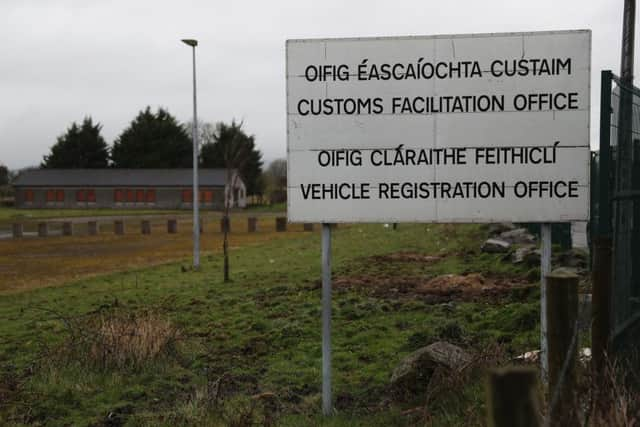Tony Kenmuir: Border inspections can be streamlined post-Brexit '“ but time is running out


The government’s current position is that they want to see no new tariffs imposed between the UK and the EU27 countries. Tariffs represent an economic barrier but there are already methods of calculating and collecting them in place for all non-EU trade. A greater practical and more pressing problem is the need for inspections by a variety of agencies at the border, for example port health, trading standards, and DEFRA.
Inspections are of particular concern for shipments of food, agricultural and pharmaceutical products.
Advertisement
Hide AdAdvertisement
Hide AdShelf life is short, so refrigeration is often required, and any delay is likely to result in spoiled cargos. Large scale technological solutions to track goods from source to destination have been suggested to speed up cross border checks but more practical short-term approaches are needed if critical delays are to be avoided.


The UK Government’s aim is to maintain UK standards at current levels (matching EU standards) and perhaps even raise those standards where appropriate.
It is hoped that checking of goods need only happen once, rather than at the port of export and the port of import. However, unless specific agreement is reached on mutual recognition of standards, border inspections must be applied in compliance with laws applied by the countries involved in the transaction. Urgent action is needed to improve the current fragmented and inefficient interactions at ports regardless of Brexit.
Two options are discussed in the Government’s future partnership paper for post-Brexit customs work. The first is a customs partnership which deals with goods being imported to the UK for onward movement to the EU27. It sets out a two-tier system with other imports being treated differently and possibly attracting different tariffs, different quotas, and different standards. Such a system would be very cumbersome expensive, and confusing for both trade and HMRC, and very difficult to police and to get right. This would most likely result in losses to the UK Treasury and would not make the UK attractive as a transit port for imports to the EU27.
The second is a highly streamlined customs arrangement, where the UK would jointly agree to implement a range of measures to minimise frictions to trade, together with specific provisions for Northern Ireland.
The rationale is that by being based on tried, trusted and recognised processes and technology this would be the least difficult option to implement. Goods moved by companies registered as Authorised Economic Operators (AEO) could be fast tracked as there is minimal risk to the revenue, guarantees are established and advance notification and full subsequent tracking is in place.
The Government has stated that it aims to have no customs declarations between the EU27 and the UK. However, there is little prospect that barrier and friction free travel could be achieved in the timescale currently being envisaged for Brexit.
CILT is concerned that activity between various government agencies needs to be accelerated. More efficient handling of goods at borders is important and beneficial, regardless of the Brexit solution. Much of the work would bring substantial improvements to the import and export of goods between the UK and the rest of the world, adding to the UK’s status as a global trade hub. AEO accreditation for more companies would create a ‘green lane’ for handling freight at borders.
Advertisement
Hide AdAdvertisement
Hide AdGoods and vehicles could pass through customs at ports and airports in the UK, provided the UK Government can agree mutual recognition of these schemes with the EU.
The implementation of self-assessment processes for those moving the largest volumes would reduce customs work at import to the UK from the EU27 and elsewhere ensuring international trust with transparent audit processes to ensure effective compliance.
If efficient handling of freight at borders is treated as only necessary for certain Brexit options, then the UK will be losing out on potential improvements for all options. Faster action now to streamline customs arrangements benefits everyone but depends on faster action by Government.
Tony Kenmuir, chair, CILT Scottish Region.